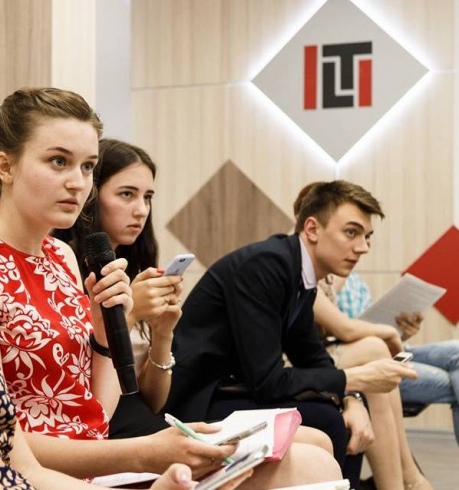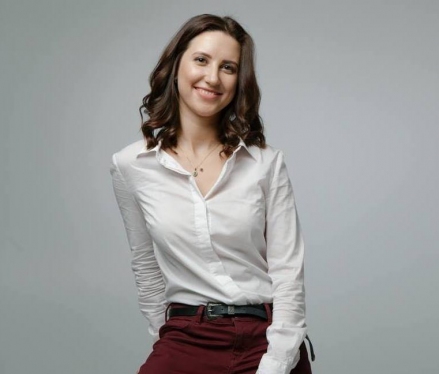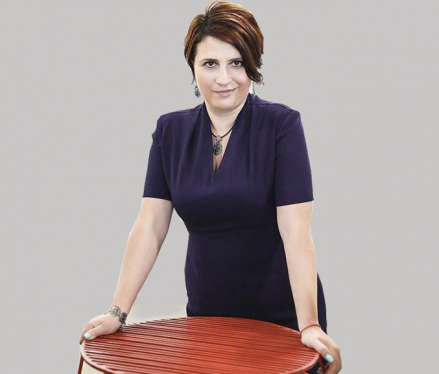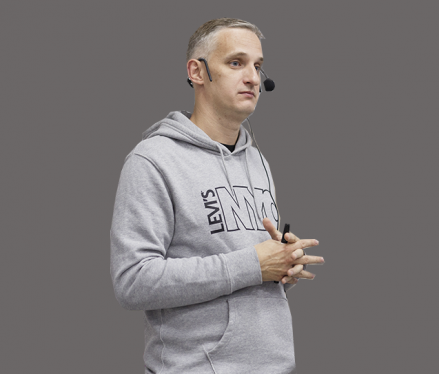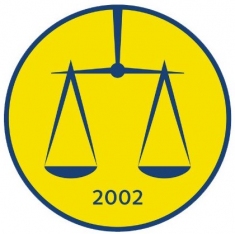1. Leadership
Personal efficiency and emotional intelligence. Signs of a true leader and responsibility. How to overcome the fear of leadership. Formation of stress resistance. Proactivity and the ability to see the ultimate goal. Ability to influence and inspire people. Skills and basic state of the leader. Theories and styles of leadership. Types of leaders - advantages and disadvantages.
2. Oratory
Basic performance skills - voice, energy, intonation, emotions. Posture and gestures - the main functions of gestures, gestural accents. Techniques for dealing with anxiety and fear. Elimination of word-parasites. Working with the audience - icebreakers, the development of confidence and ease, ways and techniques to keep the audience's attention. Storytelling techniques. Reception "Means-Benefit". Preparation and structure of the presentation. Options for starting and ending the presentation. Methods of preparation of speeches and speech plans.
3. Personal branding
What is a personal brand, why is it for you and what does it consist of. Self-identification and choice of the target audience - who and what you will be interested in. Personal motivation and goals of your story. Personal brand on and off social networks, life hacks for creating and promoting content. Hidden threats to online identity and reputational risks. How to make people know about you - work with the media.
4. Creative thinking
Innovator and performer - what's the difference? How to train your creativity. Generating ideas in a team. Brainstorming. How to get others to follow your ideas. Innovation management: from idea to initiative, from presentations to experiments, from achievements to culture. Hybrid thinking and hybrid worldview of a creative leader.
5. Team intelligence
Signs of an effective team. Setting team goals. Actions to form effective relationships in the team. 5 team flaws and ways to eliminate them. Forms of teamwork - brainstorming, meetings, conferences. Opportunities to prove yourself in a team. Feedback techniques and how to say something that does not suit.
6. Team facilitation
Features of team goals: commonality, ambition, innovation, attractiveness. Goal setting procedures. My leading roles and distribution of roles in the team. Coordination of interaction and contribution of each team member to the result. Methods of conflict resolution. Great team: A model of an effective team. 5F, five factors of team effectiveness: purpose, composition, interaction, leader, environment.
7. Project management
Acquaintance with RM: Who is it? Why do you need it? What does it do? Interaction of the Republic of Moldova with the management, customers and other participants of the project. Features of the work of the Republic of Moldova and their differences from the tasks of other team members and business analysts. Working tools and methodologies of the Republic of Moldova: types of rallies and reporting. Waterfall project management methodology, flexible management methods - Agile, Scrum, Kanban.
8. Time management
Strategic planning: necessary skills. SMART technology for goal setting. Prioritization of long-term and short-term priorities. Technique of situational decision making - think slowly, decide quickly. Ability to say: "NO". Daily time management. Grouping of tasks and rules of their formulation. Methods of analysis of time spent. Time eaters and methods of combating them. Planning tools - paper and electronic gliders, applications and useful resources. Sources of energy and "how to catch up".
9. Business communication and correspondence
The essence of business communication, its forms and main tasks. Fundamentals of business ethics. Business negotiations and business conversation. Formal business style of speech and its features. Features of telephone conversations. Ways to prevent conflicts and manipulation of the interlocutor. Business correspondence: Rule "zero inbound" and organization of work with e-mail and messengers. The organization of the material - from inconsistency to the plan. Rules for writing and editing texts, avoiding verbosity - write and shorten.
10. Strategic thinking in business
Expanding one's own horizons of thinking is needed to generate qualitatively new ideas. It is not enough to just make a wish to achieve your goal. A clear action plan and a well-thought-out strategy will help you achieve your goals at work and in your personal life. The development of strategic thinking is especially necessary in conditions of turbulence, uncertainty and crisis. The course is aimed at studying the analytical apparatus of strategic analysis and decision synthesis, which includes the generalization of the latest concepts and innovative developments. The course will help you identify a strategy to achieve your long-term goals in the context of succeeding in business or other endeavors.
11. Basics of business analysis
Business analysis to understand the mechanism of a running business. What if we give a 10% discount? And if we raise prices by 20%? Do we need to conduct a large-scale advertising campaign for a new product, or will it be enough to offer it to existing customers? Do we need advertising in principle, or is it enough to focus on the profitability of existing customers? Who and at what expense do we earn, and how can we become more efficient? A business analyst allows you to digitize your business and turn the relationships between its components into understandable numbers so that they can be managed because you cannot manage what cannot be measured.
12. Digital Marketing and Customer Experience
What is marketing and PR, and what has changed since the advent of digital? Customer Experience - is it about product, team, marketing or hype? Identification of promising market segments and research of target audiences. Social networks as tools of marketing communication: basic rules and taboos in working with Telegram, Facebook, Instagram, YouTube. Offline communication: events, media, collaborations. Creating an image of a person, brand, product.
Cost: UAH 6000.
For students: UAH 3000.
